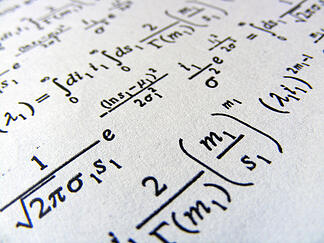Math is a subject that most students either love or hate. In either case, preparing thoroughly for the Math section of the ACT is important in order to do your best. If...
ACT Math Strategy Series [Part 1 of 3]

Math is a subject that most students either love or hate. In either case, preparing thoroughly for the Math section of the ACT is important in order to do your best. If math is not your strongest subject, building a solid foundation of understanding will be important for maintaining a decent overall score. If math comes easily for you, reviewing will still be important in order to fill in the gaps in your knowledge, especially if you want your score to truly reflect your ability. Either way, this series of posts gives you valuable strategies that will help you maximize your score. This post is the first of a three part series that looks at strategies for acing the ACT Math section.
Knowledge Is More Important Than Strategy
Keep in mind, strategy is a supplement for a basic understanding of the subject, not a substitute for it. The ACT measures your knowledge directly and your test taking ability only indirectly, so all the strategy in the world won’t help you if you don’t have the underlying subject knowledge. Focusing on knowledge first and strategy second ensures that you get both the most benefit from your education and the maximum score.
Strategy #1: Know Your Outcome
Having a target score in mind will help you prepare. If you are strong in math and want your results to show it, you will need to have a very strong understanding of the topics covered as well as be proficient with strategies and shortcuts that will allow you to complete the test questions quickly and accurately. But answering just two thirds of the questions correctly will earn you a solid, respectable 23, which is the average score. This may be acceptable to you if math isn’t your strong suit and you are aiming for a higher score on the other sections.
Strategy #2: Use Your Brain Before Your Calculator
A calculator is allowed for the ACT Math section, but all of the calculations are based on simple arithmetic (adding, subtracting, multiplying, dividing) and can be done without one. If you are good at basic arithmetic a calculator won’t necessarily help you to answer questions faster or more accurately, and it certainly won’t help you do the necessary thinking to solve the problems. Using a calculator can actually slow you down if you reach for it reflexively every time, especially if you end up hitting the wrong button and have to start over. Using a calculator is just a different skill, and doesn’t make up for a well-exercised brain, which is the most reliable tool that you have.
Strategy #3: Use Drawings To Help You Think
A picture is worth a thousand words, or sometimes a thousand equations if it helps you to understand a problem more clearly. Some problems will describe a figure but not display it, for example, in which case it can help you to draw it for yourself so that you can have it in front of you. Other problems will just be easier to understand and solve if you draw them out. Don’t draw or write more than you need to, but do make efficient use of the space you have provided for scratchwork.
Dane Dormio is an online tutor and blogger with an unconventional approach to education. Visit his tutoring blog at www.synergy-tutoring.com.

